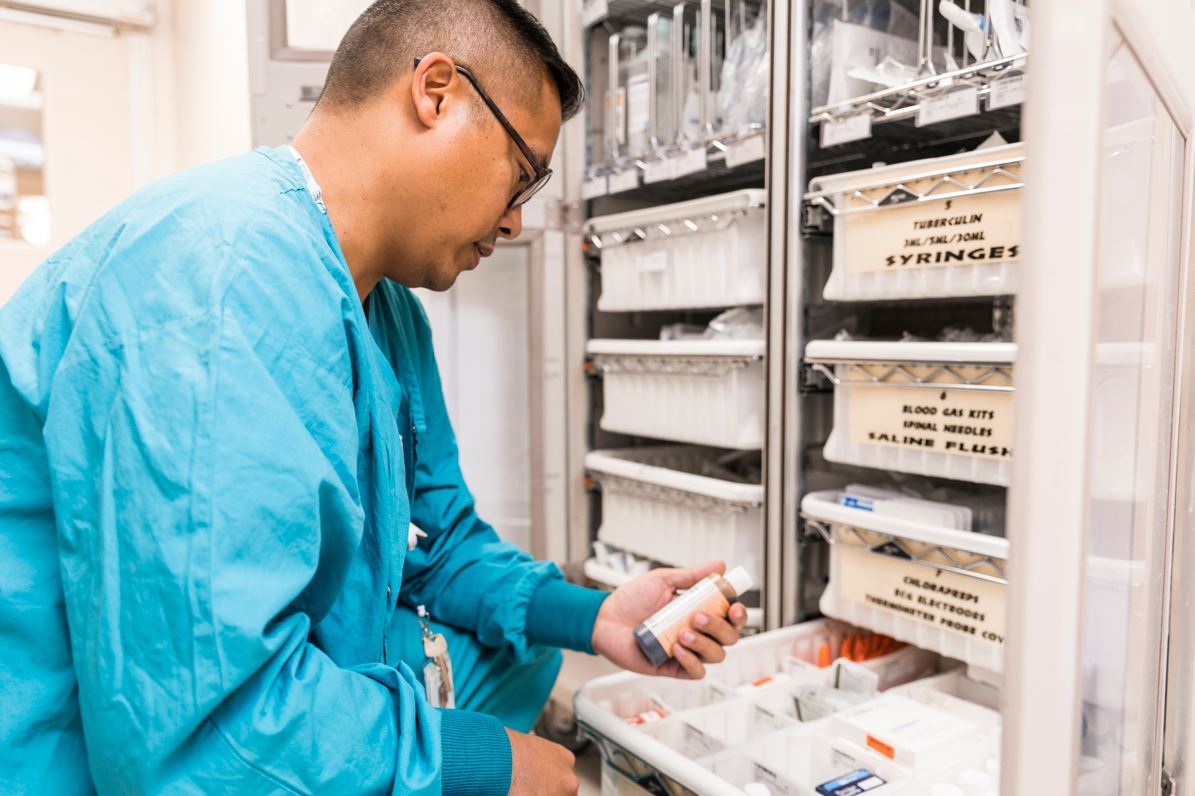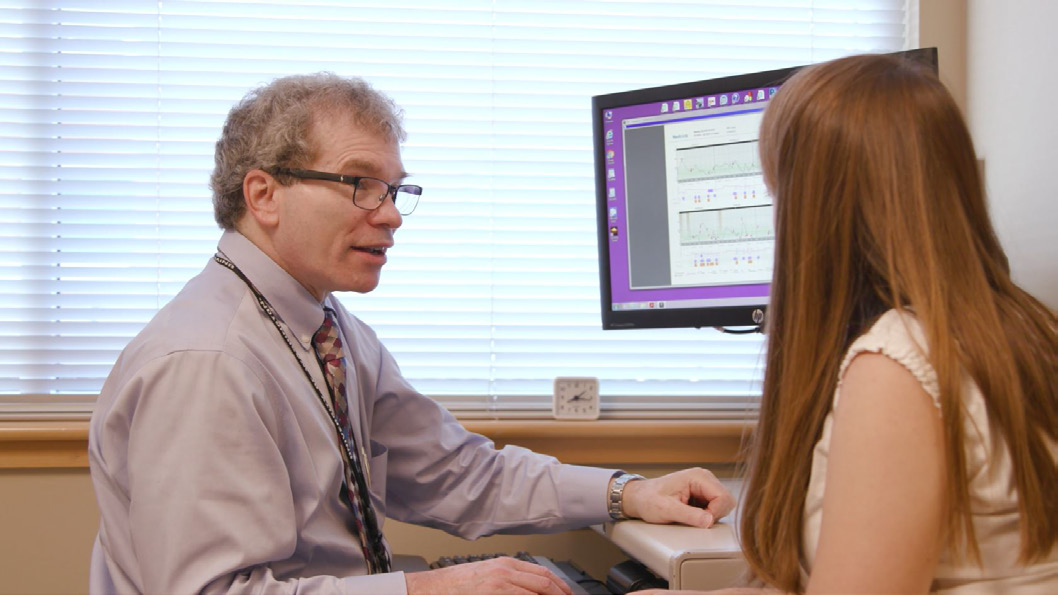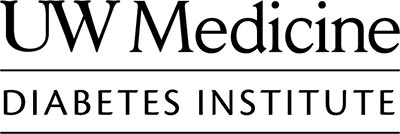APPROXIMATELY 29.1 MILLION PEOPLE IN THE U.S. have diabetes, a common and deadly disease that, in addition to disrupting the body’s metabolism, attacks the heart, eyes, nerves and kidneys. The disease is becoming a pandemic; over the past several decades, the number of people with diabetes has doubled, and it will likely continue to increase. Unfortunately, diabetes treatments are often not as effective as we would wish. In fact, many patients receiving treatment continue to have elevated blood sugar levels and the serious health problems that accompany diabetes. There is a pressing need for comprehensive care and effective new strategies to treat and prevent diabetes. The new UW Medicine Diabetes Institute (UWMDI) is poised to achieve both of these goals by uniting world-class diabetes care specialists with leading-edge diabetes researchers. We request your support in this important work.
Our Vision: Collaborating Under One Roof
Because diabetes affects nearly every part of the body, a multidisciplinary approach to the disease will be the most effective in developing treatments and cures. That is why we have created the UW Medicine Diabetes Institute. The UWMDI builds upon UW Medicine’s extensive foundation of diabetes research expertise, detailed in the sidebar, as well as our providers’ superb work with patients at the Diabetes Institute Clinic. Today, researchers and doctors work together, so that patients benefit from state-of-the-art research, and researchers benefit from meeting and understanding the needs of patients and families. That said, we are capable of even more. With the UWMDI, we will take this synergistic interaction to a new level — by bringing research and patient care together in one facility.
Join Us
UW Medicine has the potential to change diabetes care in our community and around the world. The UW Diabetes Institute fully integrates state-of-the-art diabetes care with deep expertise in clinical and basic science research.
We know the results will be lifesaving and life-changing, and we invite you to support the institute: to help the millions of people who have — or who are at risk of having — diabetes.
To learn more, please contact Helen Scarlett, director for philanthropy, at 206.685.8692 or at helenvs@uw.edu. Thank you very much for your interest in our work.
Twenty twenty-two marked five years since the launch of the UWM Diabetes Institute, under the leadership of co-directors Dr. Stephanie Page and Dr. Michael Schwartz. Philanthropic support from private donors has been foundational to our success, and we thank you.
CLINICAL CARE
We are proud to report that the Institute continues to thrive. In 2022, we completed over 15,000 patient visits at our SLU Clinic, providing services across glycemic management, nutrition, and diabetes-related complications.
In 2022 we onboarded seven new faculty members, including three new Advanced Practice Providers or APPs – two Advanced Registered Nurse Practitioners and one Physician’s Assistant – to help increase access for patients. These new APPs will facilitate ongoing care for our patients and enable our physicians to increase the number of new patients the Diabetes Institute can serve. Two of the new faculty members are jointly appointed (Medicinal Chemistry and Pediatrics), which broadens the reach of our collaboration.
BASIC AND CLINICAL RESEARCH

Lab-based and translational (to human patients) research remains the foundation of our work, and we are pleased to report that in total, last year, our scientific team at SLU authored or co-authored over 75 publications and secured over $10 million in new research awards.
Our team of world-class faculty continue to have their dedication and success recognized through national awards. We would like to share some highlights with you:
- Irl Hirsch is the 2023 recipient of the President’s Award for Innovation from Children with Diabetes (CWD)
- Faisal Malik has been selected as best Pediatric Principal Investigator in the T1DX-QI in 2022
- UWMDI Co-Director Dr. Stephanie Page is an inaugural recipient of the Gender Equity Trailblazer Award
- Steven Kahn has been appointed incoming editor-in-chief of Diabetes Care
- UWMDI Investigator Karin Bornfeldt, PhD was awarded the George Lyman Duff Memorial Lectureship at the American Heart Association’s Scientific Sessions
CURRENT INVESTIGATIONS
And our investigators have made some groundbreaking discoveries over the last year, leading us toward a better understanding of the disease, improved treatments, and eventually a cure for Diabetes. We would like to share some of the highlights with you:
Improving our understanding of how Diabetes increases the risk of heart disease and kidney disease
The Bornfeldt, Kanter and Vaisar Labs continue to clarify how Diabetes increases the risk of cardiovascular disease and kidney disease by investigating a certain kind of understudied lipoprotein called remnant lipoprotein. This lipoprotein is different from LDL and HDL cholesterol measured as part of the standard lipid panel. Therapies aimed at blocking production of this lipoprotein have the potential to prevent the increased risk of heart and kidney disease in patients with Diabetes.
Moving closer to a treatment that could reverse Diabetes
The Schwartz, Morton and Scarlett Labs published a series of papers that clarify the complex mechanisms whereby the brain, under the influence of the peptide fibroblast growth factor 1 (FGF1), can induce sustained Diabetes remission in rodent models. Through a multinational collaborative network, this team first identified the brain area involved, and more recently the specific type of neuron responsible for the FGF1 effect. Ongoing studies seek to translate these findings toward novel treatments for Diabetes patients.
Revealing new insight into the mechanisms at work behind insulin secretion
Dissolved gas signals such as hydrogen sulfide, carbon monoxide and nitric oxide play critical roles in cellular metabolism and function. However, they exist at low levels and gases are difficult to study. Accordingly, the Sweet Lab has pioneered innovative technology enabling control of exposure of tissue to trace dissolved gases. Results from the new instrumentation revealed a novel stimulatory effect of insulin secretion by hydrogen sulfide pointing to the existence of a regulatory pathway that could be harnessed for the treatment of Diabetes. This work is the basis for a newly funded four-year grant from the NIH.
Research into how diet affects the brain
The Schur Lab has used magnetic resonance imaging (MRI) to show evidence of inflammation in areas of the brain that regulate body weight and glucose in people with type 2 Diabetes and obesity. In a new project, they are feeding participants high and low-calorie diets for two weeks and scanning their brains repeatedly with MRI to see how what you eat affects the brain.
Better understanding of the progression and treatment of Diabetes in adults and Children
The Kahn Lab continues to improve scientific understanding of how type 2 Diabetes develops and progresses in adults and children in relation to degree of obesity and insulin resistance, and how the disease is treated.
Uncovering the importance of the islet microenvironment in Diabetes development
The Hull-Meichle Lab has demonstrated the blood vessels within the islets become destabilized in Diabetes and show that this process contributes to islet failure. Moreover, they continue to work at the forefront of discovering mechanisms underlying the development of Diabetes with cystic fibrosis.
Resurfacing the small intestine to improve glucose control
Duodenal mucosal resurfacing is an investigational procedure being studied in our Clinical Research Unit to treat type 2 Diabetes. During this endoscopic procedure, a portion of the duodenum (small intestine) is treated with heat to smooth out its surface, decreasing food absorption at this site. This increases food interaction with further portions of the small bowel, which helps reset some of the metabolic processes that are not functioning normally in patients with type 2 Diabetes. This procedure has shown improvements in glucose control, body weight and reduction in need for insulin in patients in early clinical trials so far and the results lasted up to one year.
Providing culturally accessible care to underserved communities
November 2022 marked the official second anniversary of the Institute’s LatinX Diabetes clinic, under the leadership of Dr. Lorena Wright. The mission of the clinic is to reduce Diabetes are disparities in a population disproportionally affected by this disease and its complications, by providing bilingual, bicultural personalized care. Our bilingual staff is composed of one endocrinologist, one internal medicine doctor, a nutritionist, patients service specialists and medical assistant aims at reducing gaps in care. Patients have access to multidisciplinary highly specialized care and access to the latest therapeutics and technologies as well as opportunities to participate in clinical research. In 2022 the clinic offered services to 469 unique patients, most of them Spanish speaking. Our clinic also offers telemedicine visits for patients living in remote rural areas. In addition to direct clinical care, the clinic participates actively in outreach efforts in the community, by providing educational workshops and healthcare awareness and screening events.
This year marks the third anniversary of the UWMDI, which continues to exceed our expectations. For example, despite the pandemic, we have seen steady growth in the number of patients we serve. This year alone we are on track to complete 15,000 patient visits, providing services across glycemic management, nutrition, cardiology, mental health, and kidney care for our patients with diabetes within the SLU clinic. On the research side, our scientific team at South Lake Union has authored or co-authored over 70 publications and they have secured over $19 million in new research awards in 2020. While our clinical research activities were slowed during the spring COVID surge, we recruited two new investigators to our team who already have new clinical research grants including support for programs geared towards health education and equity. As 2020 draws to a close we are thankful for the rich, productive, creative and collaborative environment at the UWMDI, which your donations help make possible. I hope you enjoy hearing from just a few of our clinicians and scientists about their recent accomplishments.

For all of us in the field of medicine, this has been an unprecedented and unforgettable year. Although COVID-19 dominated the news, we still have a battle against diabetes to fight; like other infections, diabetes is associated with an increased risk of dying from COVID-19. By supporting our work in diabetes research and patient care at UW Medicine, you are providing critical support that is not only helping to expand our understanding of diabetes and its complications, but also impacting patient outcomes. We are extremely grateful for your caring partnership.
A WORD FROM OUR UWMDI CO-DIRECTORS STEPHANIE PAGE, MD, PHD, AND MICHAEL SCHWARTZ, MD
This year marks the third anniversary of the UW Medicine Diabetes Institute (UWMDI), which continues to exceed our expectations. For example, despite the pandemic, we have seen steady growth in the number of patients we serve. We are on track to complete 15,000 patient visits, providing services across glycemic management, nutrition, cardiology, mental health and kidney care in 2020, ahead of our projected goals, despite COVID. On the research side, our scientific team at South Lake Union has authored or co-authored over 70 publications and they have secured over $19 million in new research awards in 2020. While our clinical research activities were slowed during the spring COVID-19 surge, we recruited two new investigators to our team who already have new clinical research grants, including support for programs geared toward health education and equity. As 2020 draws to a close, we are thankful for the rich, productive, creative and collaborative environment at the UWMDI, which your donations help make possible. I hope you enjoy hearing from just a few of our clinicians and scientists about their recent accomplishments.


Irl B. Hirsch, MD
UW Professor, Division of Metabolism, Endocrinology and Nutrition
Diabetes Treatment and Teaching Chair
THE DIABETES INSTITUTE AT SOUTH LAKE UNION
One of our most exciting updates is the opening of our beautiful new UW Medicine Diabetes Institute at South Lake Union. We opened the doors in July 2019, and it is safe to say our new space has been an amazing success for the School of Medicine, for our division and for me personally. We are able to treat patients in an incredible new facility, which is also fostering promising new research. With a consolidated lab and clinic, I can now walk upstairs to meet with researchers, participate in their research and attend conferences — all of which is leading me to be a better scientist and clinician.

PATIENT CARE
Challenges like the COVID-19 pandemic highlight the talent and creativity of our incredibly gifted team. Prior to the pandemic, talks had been underway at the Diabetes Institute about developing our telemedicine infrastructure. We had estimated that it would take two years to become operational; instead, we were able to implement our plan in one week, learning as we went.
Because so much of what we do is driven by data, there was quite a steep learning curve in understanding how to take all of the different glucose meters, pumps and continuous glucose monitoring devices and either upload the data to the cloud or have it downloaded directly to the patient’s computer and then emailed to us. We are fortunate to have amazing medical assistants behind the scenes who spent many hours ensuring that we were prepared for each patient. I don’t think any of us really appreciated how difficult it would be to transition to telemedicine, but it has worked out quite well. Thanks to my colleagues’ hard work and determination, telehealth will likely be part of our diabetes management moving forward.
RESEARCH
On the research side, things have been extremely busy for me. The PERL (Preventing Early Renal Loss in Type 1 diabetes) study was completed, presented and published in the New England Journal of Medicine. This study showed that lowering uric acid levels with allopurinol in Type 1 diabetes did not change the trajectory of diabetic kidney disease.
I continue to be involved with three different hybrid closed-loop systems, and I suspect that by the summer or fall of 2021, there will be four of these systems on the market. Although we had several studies that had to be either postponed or stopped due to the coronavirus, we are now starting several other studies. For example, I am involved in several investigations regarding diabetic kidney disease funded by the National Institutes of Health (NIH) with my colleague Dr. Ian de Boer.

MICHAEL SCHWARTZ, MD
Co-Director UW Medicine Diabetes Institute
UW Professor, Department of Medicine, Division of Metabolism, Endocrinology and Nutrition
Robert H. Williams Endowed Chair
DIABETES INSTITUTE UPDATES
Since March, the daily operations of the building in which the UWMDI is housed, on the South Lake Union campus of UW Medicine, have changed dramatically to mitigate the risk of disease spread. Social distancing, masking, routine decontamination of lab equipment, converting in-person meetings to a remote, computer-based format and many other adaptations have become the new normal for UWMDI for the foreseeable future.

Even with these complications, the UWMDI continues to be a well-funded and highly productive operation. Although research slowed noticeably in the months of March, April and May, our operations evolved gradually, enabling a high level of productivity without compromising safety. In my research program, for example, all full-time employees and investigators have returned to full-time work, and — knock on wood — we have yet to have a single case of COVID-19 diagnosed, not only within my lab, but across our entire research enterprise. This achievement reflects not only the dedication and competence of our research personnel, but also the ingenuity of our administrative leaders, who rapidly transformed our policies to create a safe and effective working environment.
RESEARCH
In addition to my leadership role within the UWMDI, my research program continues to be very active in its study of the role of the brain in the control of blood sugar, how dysfunction of this brain control system contributes to the pathogenesis of diabetes, and how this information informs the future treatment of these disorders.
Since 2018, my lab has published 13 new manuscripts, including two that have been accepted for publication in nature-level journals (one in Nature Metabolism and one in Nature Communications). Some of this work continues to focus on the remarkable antidiabetic action of a growth factor called FGF1 when administered directly into the brain of rodents with Type 2 diabetes. Indeed, a single injection can induce diabetes remission that is sustained for weeks or months, and we have made substantial progress in clarifying the cellular and molecular mechanisms that underlie this FGF1 effect. This success was made possible by an ongoing international multi-investigator collaboration and would not have been possible without philanthropic support.
Nature-Level Journal Publications:
Read the Nature Metabolism Article
Read the Nature Communications Article
 KARIN E. BORNFELDT, PHD
KARIN E. BORNFELDT, PHD
UW Professor, Department of Medicine, Division of Metabolism, Endocrinology and Nutrition
UW Professor, Department of Laboratory Medicine and Pathology
Edwin Bierman Endowed Professorship in Metabolism, Endocrinology and Nutrition
PROGRAM HIGHLIGHTS
My research team has recently adopted a “human-first” approach to science to help us find new drug targets to combat the increased risk of heart disease associated with diabetes. This means that we analyze human plasma samples stored over time, searching for plasma proteins that can predict who will have a cardiovascular event, such as a heart attack, in the future. This approach allows us to discover proteins that are present in plasma many years before a heart attack. We can then use our mouse models to investigate whether the identified proteins cause increased heart disease and what the mechanisms are.
In the past two years, we have used this approach to identify a plasma protein called apolipoprotein C3 (APOC3), which predicts heart disease in people with Type 1 diabetes, independent of blood glucose control and traditional cardiovascular risk factors, such as LDL. We used mouse models of diabetes and heart disease to show that APOC3 does indeed worsen heart disease in the setting of diabetes, and that diabetes results in increased levels of this protein in plasma — not because of the higher blood glucose levels, but because of insufficient levels of insulin or insulin resistance. APOC3 works by slowing the body’s ability to clear triglycerides, a type of blood fat that is different from LDL. Our findings suggest that inhibiting APOC3, using new therapeutics that are already in clinical trials, might prevent heart disease in people with diabetes.
I’m excited to share that our work was published in a leading medical journal (the Journal of Clinical Investigation), accompanied by a commentary and even featured on the cover. This groundbreaking research has received nationwide attention from organizations like the National Institutes of Health (NIH), which awarded our group two highly competitive grants. We are continuing to work on APOC3 and other related proteins that regulate triglyceride levels in people with Type 1 or Type 2 diabetes.
Read the Journal of Clinical Investigations Article
 JAY HEINECKE, MD
JAY HEINECKE, MD
Professor, Department of Medicine, Division of Metabolism, Endocrinology and Nutrition
Karasinski Endowed Chair in Metabolic Research
PROGRAM HIGHLIGHTS
Diabetic patients are at greatly increased risk of heart disease. However, traditional heart disease risk factors, like high blood pressure and high cholesterol levels, do not fully explain this increased risk.
Recently, we used our quantitative proteomics and ion mobility assay to demonstrate that low levels of two proteins — PON1 and PON2 — found in HDL (the good form of cholesterol) predict calcified atherosclerotic heart disease in diabetic patients. Our findings suggest that PON1 and PON2 protect against heart disease in diabetic patients. Now, we are exploring potential mechanisms using a combination of tissue culture and animal models for diabetic heart disease.
We are excited about our progress and the discoveries that are advancing our understanding of diabetes and heart disease, such as:
- Low levels of PON1 and PON2 in HDL predict calcified atherosclerotic lesions in Type 2 diabetic patients.
- Low levels of PON1 in HDL predict heart disease risk in Type 1 diabetic patients.
- High levels of APO3, a protein linked to lipid metabolism, predict future heart attack risk in Type 1 diabetic patients.
- APOA1, the major protein in HDL, develops multiple structural forms with very different biological functions.
We are currently focusing on two major issues. First, we continue to extend our studies on clinically relevant risk factors for heart disease in diabetic patients. Second, in collaboration with Dr. Karin Bornfeldt, whose work is highlighted above, we are using animal models of heart disease and diabetes to determine the mechanisms that affect heart disease risk in patients.
 STEVEN E. KAHN
STEVEN E. KAHN
UW Professor, Department of Medicine, Division of Metabolism, Endocrinology and Nutrition
Leonard L. Wright and Marjorie C. Wright Chair
PROGRAM HIGHLIGHTS
The ongoing research in my basic science laboratory focuses on the deposition of amyloid protein deposits that contribute to the loss of insulin-producing beta cells in Type 2 diabetes. Trainees in the laboratory are working on novel related aspects to determine their role in the amyloid-induced aspect of the disease.
- One trainee, who had transitioned to junior faculty, successfully competed for a Career Development Award from the Department of Veterans Affairs (VA), which funds five years of salary to support further scientific development. His studies had focused on apoptosis repressor with CARD domain, also known as ARC, and based on these, he was able to demonstrate the presence of a novel immune mechanism that contributes to the loss of beta cells through a unique form of cell death called necroptosis. This promising researcher recently accepted a tenured faculty position at Indiana University with an appointment at the VA in Indianapolis.
- Another young scientist published her novel finding that the protein steroidogenic acute regulatory protein (StAR) is present in islet beta cells, and its expression increases with amyloid formation. She is now completing the generation of data that demonstrates that this protein increases cholesterol transport into a cellular compartment known as mitochondria, and the result is the development of mitochondrial dysfunction. These findings provide the basis for further study of this abnormal protein.
- A post-doctoral trainee who has been in the group for three years has been making great progress. She has been studying the protein tissue plasminogen activator (tPA), which is normally involved in blood clotting. Interestingly, she has shown that its levels increase in cells in the islet when islet amyloid forms, which her recent data suggest acts to limit cellular damage by amyloid. It is anticipated that within the next few months she will have sufficient data to submit a manuscript that will, for the first time, describe this unique role of tPA. Her studies in this area also resulted in her receiving the prestigious University of Washington Dick and Julia McAbee Fellowship. Finally, she recently completed a review manuscript on the functional problems with the beta cell in Type 2 diabetes that has just been published in a major international journal devoted to diabetes.
- In the summer of 2020, another post-doctoral trainee joined the group, having recently completed a PhD at Stony Brook University. Many of the techniques she will learn during her time with us will dramatically broaden her expertise. She is already showing great potential and will focus her studies on the role of cholesterol in beta-cell function and Type 2 diabetes.
 On behalf of the entire UW Medicine Diabetes Institute, please accept our deep gratitude for your generosity and trust in us. While 2020 has tested and challenged us in many ways, the importance of this work, as well as your visionary support, keeps us motivated and energized. We look toward 2021 with anticipation and excitement — not only for the research and patient care innovations ahead of us, but to celebrate the 100th anniversary of the discovery of insulin. Although we still have a way to go to cure diabetes, we have much to celebrate. Thank you for believing in us.
On behalf of the entire UW Medicine Diabetes Institute, please accept our deep gratitude for your generosity and trust in us. While 2020 has tested and challenged us in many ways, the importance of this work, as well as your visionary support, keeps us motivated and energized. We look toward 2021 with anticipation and excitement — not only for the research and patient care innovations ahead of us, but to celebrate the 100th anniversary of the discovery of insulin. Although we still have a way to go to cure diabetes, we have much to celebrate. Thank you for believing in us.

Helen Scarlett
Director for Philanthropy, UW Medicine Advancement.



